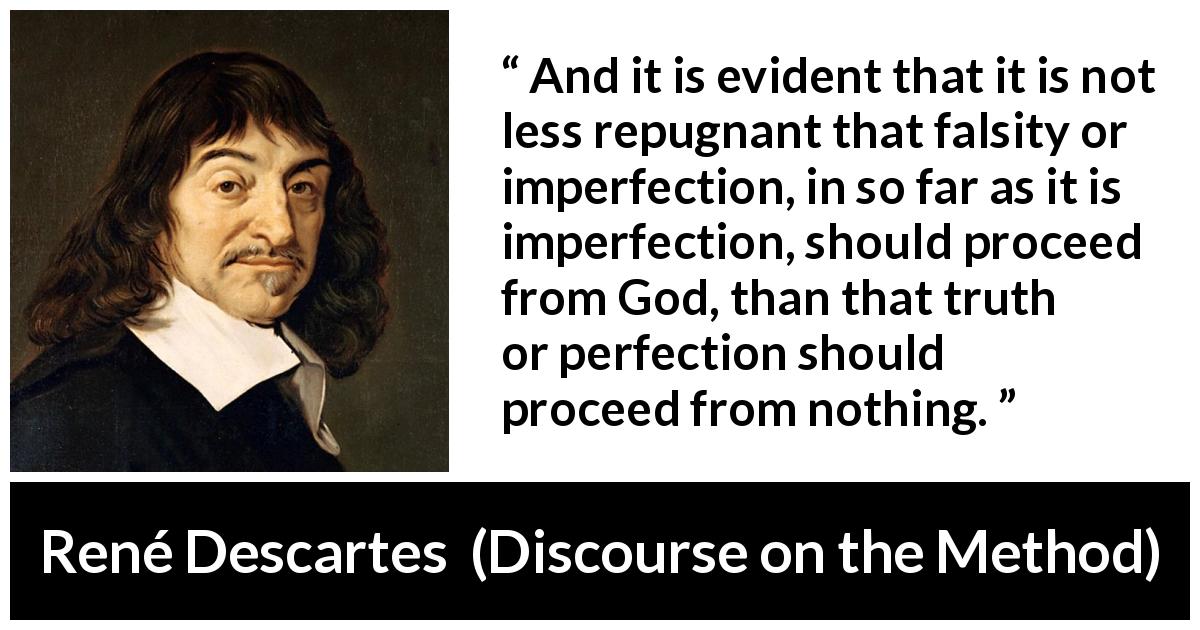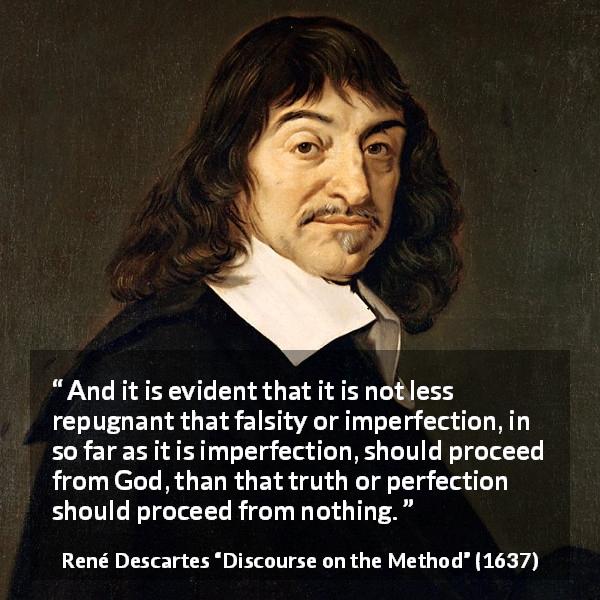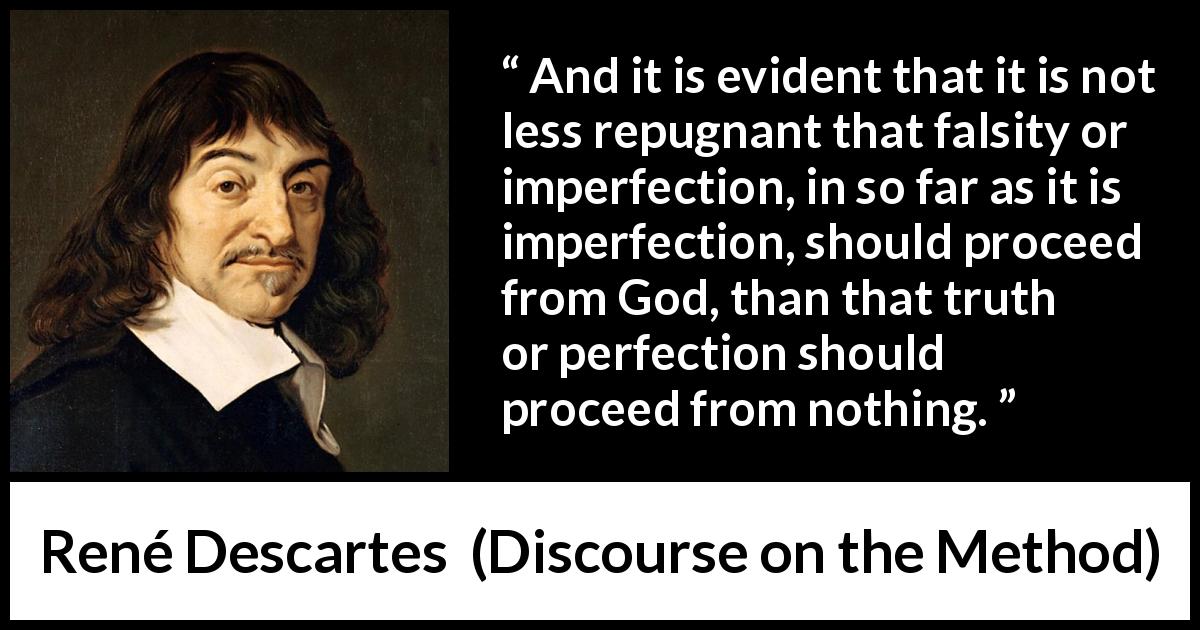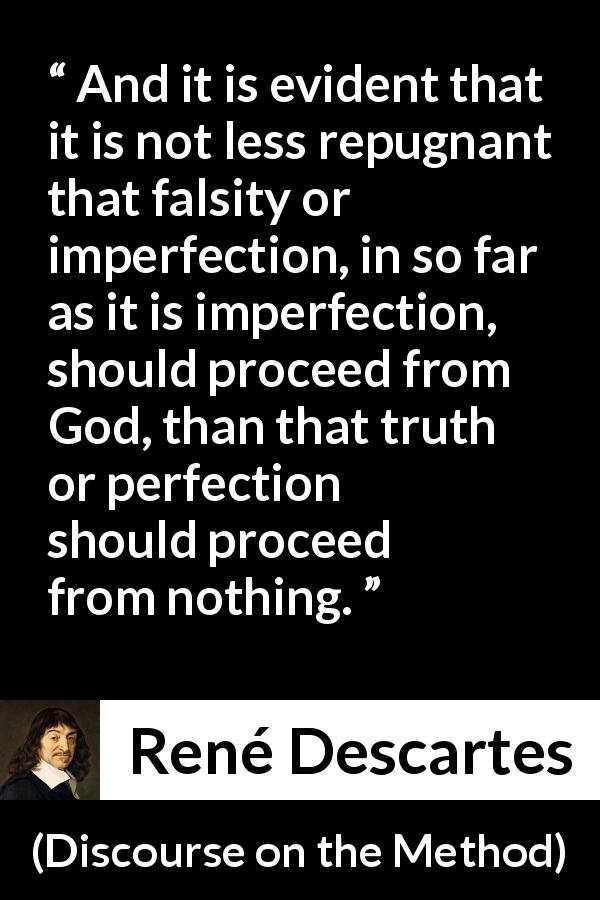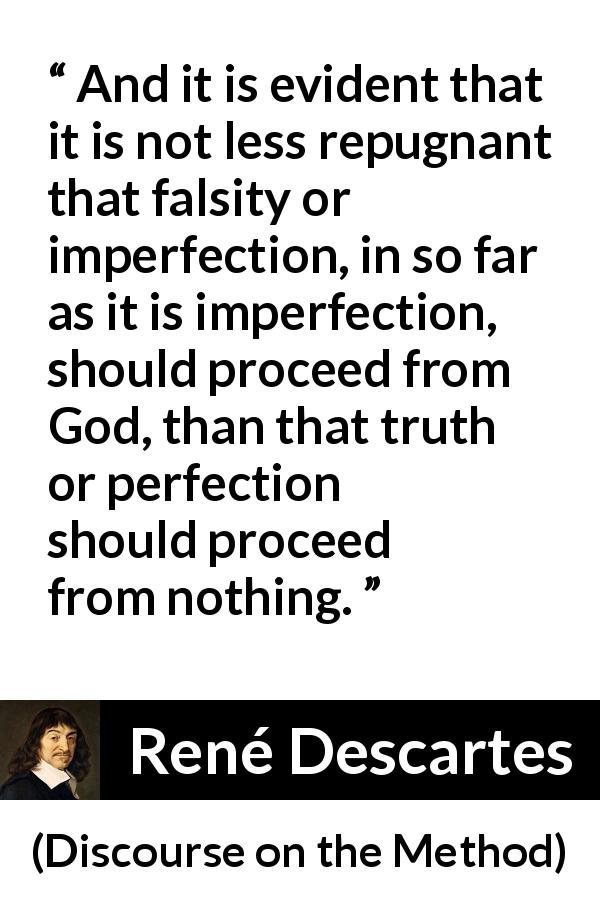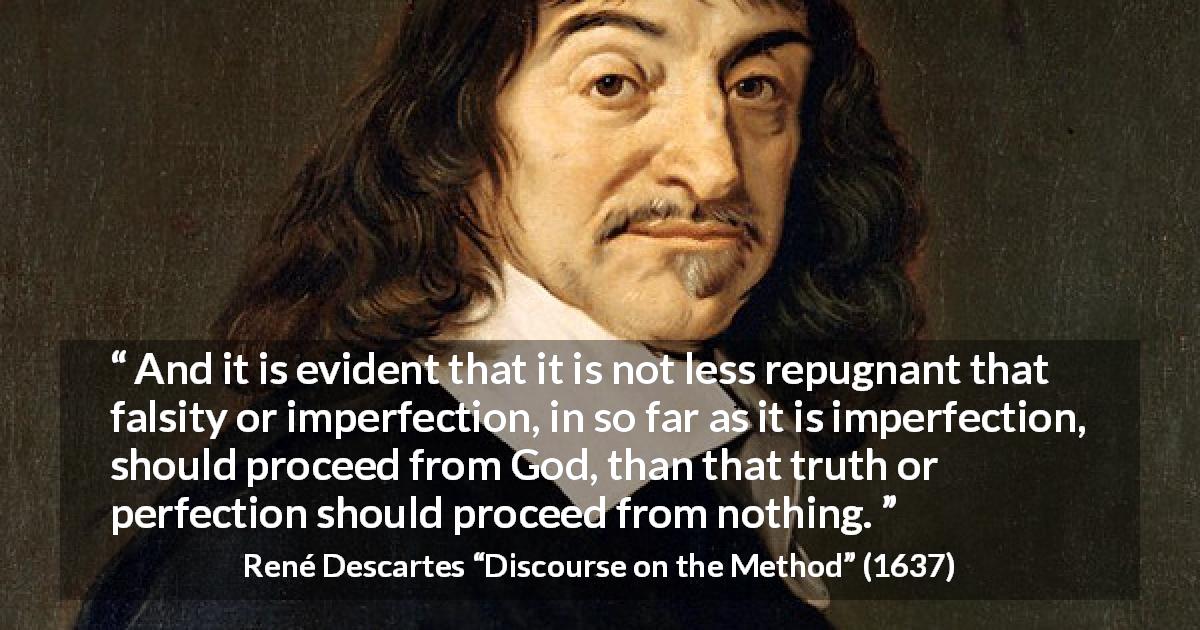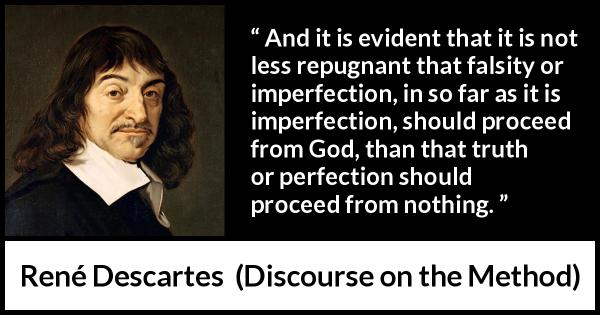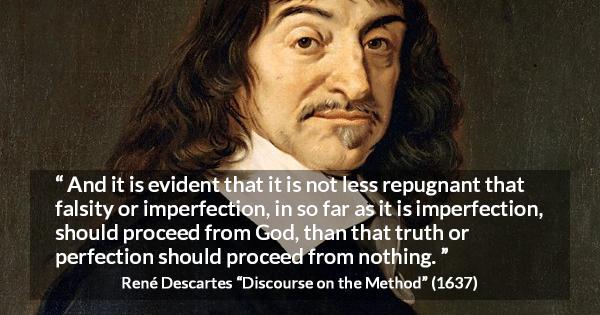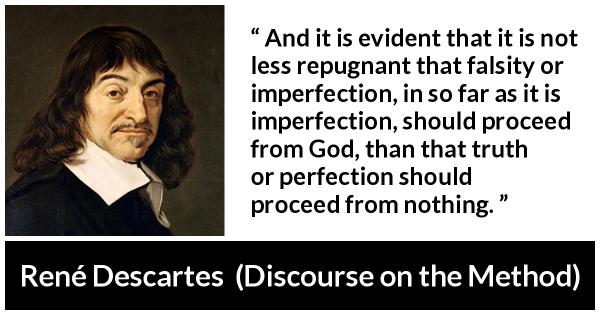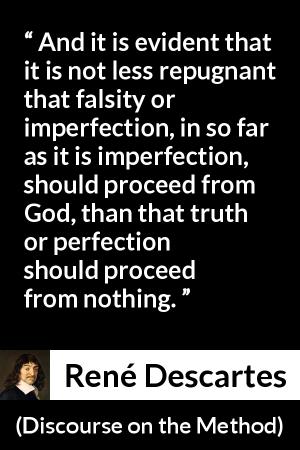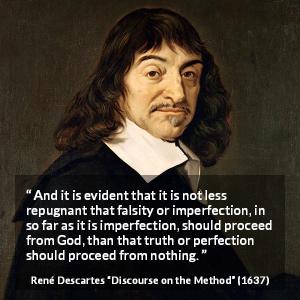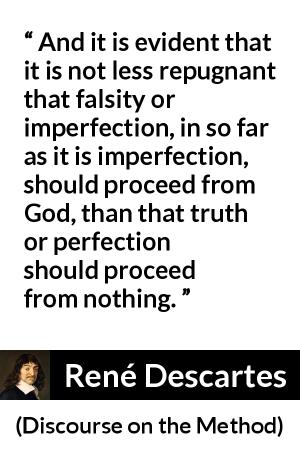“ And it is evident that it is not less repugnant that falsity or imperfection, in so far as it is imperfection, should proceed from God, than that truth or perfection should proceed from nothing. ”
René Descartes, Discourse on the Method (1637). copy citation
| Author | René Descartes |
|---|---|
| Source | Discourse on the Method |
| Topic | truth God falsity |
| Date | 1637 |
| Language | English |
| Reference | |
| Note | |
| Weblink | http://www.gutenberg.org/files/59/59-h/59-h.htm |
Context
“Accordingly, whereas we not infrequently have ideas or notions in which some falsity is contained, this can only be the case with such as are to some extent confused and obscure, and in this proceed from nothing (participate of negation), that is, exist in us thus confused because we are not wholly perfect. And it is evident that it is not less repugnant that falsity or imperfection, in so far as it is imperfection, should proceed from God, than that truth or perfection should proceed from nothing. But if we did not know that all which we possess of real and true proceeds from a Perfect and Infinite Being, however clear and distinct our ideas might be, we should have no ground on that account for the assurance that they possessed the perfection of being true.”
source
